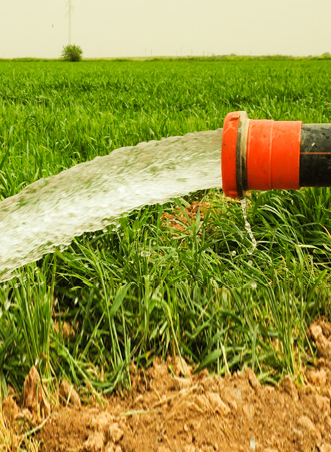

Irrigation Water Monitoring involves the determination of the Volume, Frequency, and Application Ratio of Irrigation Water. The maintenance of the Quality of Irrigation Water is important for Crop Grown, as the right mineral contents promote Plant health. Irrigated Agriculture is based on Water Quality. As such, the right Water Constituents directly impact the Quality of the Crops being grown. Irrigated Water Quality is Assessed on multiple criteria like Soluble Salts, Alkalinity, pH, and Hardness. Poor Quality of Irrigated Water leads to Slower growth and Poor Aesthetic Cropland Quality. For example, High Water Alkalinity affects the pH of Irrigated cropland and Crop Health.
The Components of Irrigated Water influence Plant Productivity in both negative and positive ways. Chloride and Sodium can lead to Ion Toxicity. Monitoring of Irrigation water helps detail the Components and their Toxicity on an ongoing basis. Irrigation Water Quality comes under the IS 11624 Regulations. Both Agricultural Industries and the Testing Laboratories are required to comply with these Regulations.
EFRAC’s Scientifically Equipped Water Testing Division offers Scientific Analysis of Irrigation Water Testing. In EFRAC, we offer Accurate Irrigation Water Testing Analysis for the Clients and Regulatory Authorities by experienced Researchers. EFRAC has a Scientifically Equipped Water Testing Division and provides Precise Results on Irrigation Water Testing with Quickest Around Time for their Clients.

Irrigation Water Quality Monitoring
WET CHEMISTRY:
• Total Salt Concentration
INSTRUMENT (pH Meter):
• pH
INSTRUMENT (TURBIDITY METER):
• Color
QUALITATIVE:
• Odour
INSTRUMENT (ICP-MS):
• Boron Content
• Sodium Absorption Ratio
• Residual Sodium Carbonate (me/l)
• Bicarbonate Ion Concentration (me/l)
• Soil Properties
• Temperature
• PCB & PAH
• Pesticides
• UV-VS Spectrophotometer
• FT-IR
• Hot Air Oven
• pH Meter
• RT-PCR
• GC
• LC
• Drop Tester
• Gas Chromatography
• ICP MS/ICP-OES
• BIS
• IS 11624
• ISO